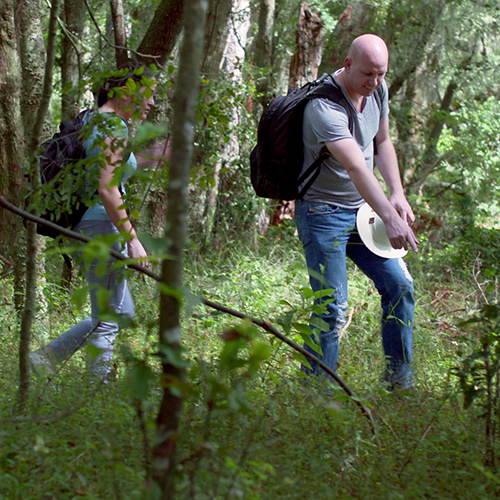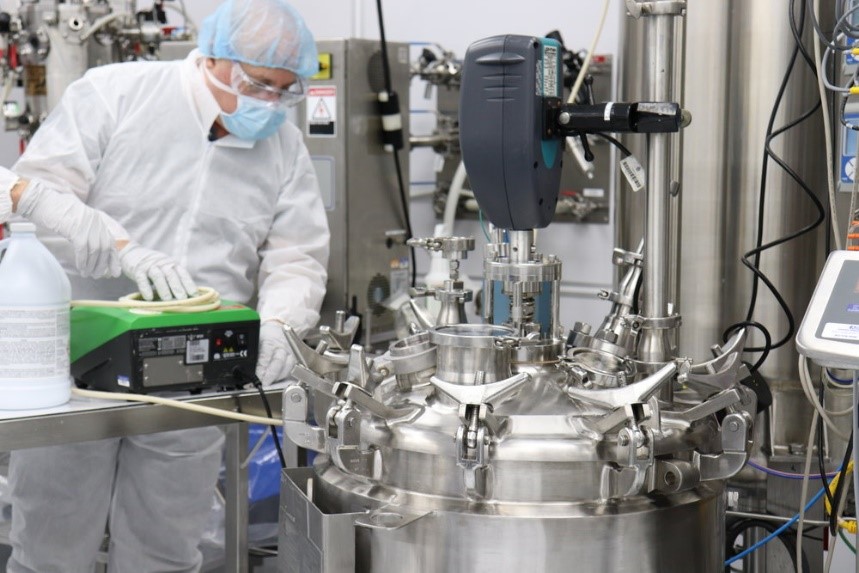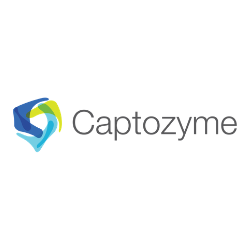
Ask Helena Cowley, former chief operating officer of Captozyme, Inc. about the genesis of the company and she’ll respond, categorically, that it “would have never happened without NIH Small Business Innovative Research Award [SBIR] grants.” It was the grant money—multiple SBIRs from the National Center for Complementary and Integrative Health and the National Institute of Diabetes and Digestive and Kidney Diseases—to which Captozyme owes its existence, she says.
Located in Gainesville, Florida, Captozyme was co-founded by Aaron Cowley, Ph.D. and Qing-Shan Li, Ph.D. in 2009 to develop enzyme-based, oxalate-reducing foods and drugs for those sensitive to oxalates or who suffer from excess oxalate in the urine. Excess oxalates, substances that occur naturally in many plant foods, are the primary cause of kidney stones.
Cowley is quick to point out that research conducted under the SBIR awards satisfied just one piece of Captozyme’s entrepreneurial aspiration. To sustain its passion for developing enzyme-degrading products, the company established a services facility focused on live biotherapeutics (organisms used as drugs) that conducted process development for drug companies. Captozyme’s services facility arm operated in parallel with its enzyme research and development arm.
True to Captozyme’s calling, it was fundamental enzyme research that led it to discover and develop two enzyme products that remove ingested oxalate and/or oxalate produced naturally within the human body. The products may be taken separately or in combination as they work in two different locations in the body: the stomach and the gastrointestinal tract.
Without the NIH SBIR grants none of this would have been possible. The grants were the seed, the origin, for our success.
 Captozyme participated in the 2015-2016 NIH Small Business Commercial Assistance Program, designed to help NIH Small Business Program Phase II awardees transition their products into the marketplace. Cowley recalls that through the program, Captozyme received information and training, business planning support, and access to a consultant. It was “very helpful and well organized.”
Captozyme participated in the 2015-2016 NIH Small Business Commercial Assistance Program, designed to help NIH Small Business Program Phase II awardees transition their products into the marketplace. Cowley recalls that through the program, Captozyme received information and training, business planning support, and access to a consultant. It was “very helpful and well organized.”
In late 2017, owing to its oxalate-mitigating enzymes discoveries, Captozyme partnered with a consulting firm that shepherded it through obtaining GRAS (Generally Recognized as Safe) designation for an enzyme-reducing nutritional supplement. Marketed to consumers, the product achieved commercial success, but physicians and consumers asked for more data and clinical studies.
It was the services facility arm of Captozyme that ultimately attracted ArrantaBio, a microbiome contract development and manufacturing organization. At the end of 2019, ArrantaBio purchased Captozyme. As part of the transaction, Captozyme’s enzyme intellectual property was spun out into a new biopharmaceutical company, Oxidien Pharmaceuticals—with Cowley at the helm—to continue clinical development of enzyme-degrading products, fulfilling the need expressed during the sales of the nutritional supplement.
Out on her own now at Oxidien Pharmaceuticals and carrying on in the original spirit and vein and of Captoyzme, Cowley remains grateful. “Without the NIH SBIR grants none of this would have been possible. The grants were the seed, the origin, for our success.”







